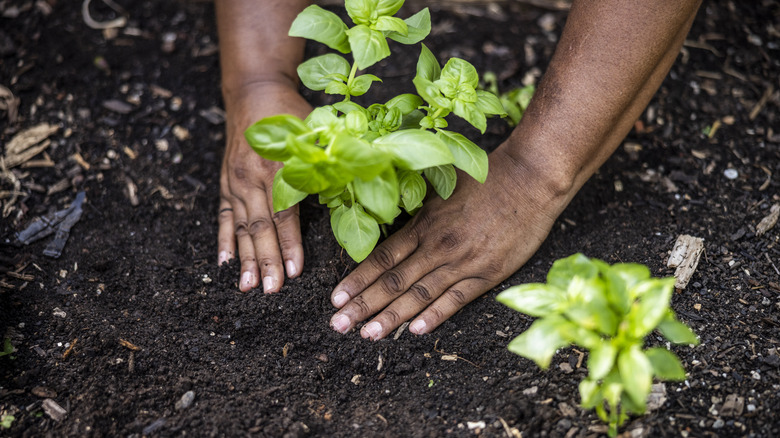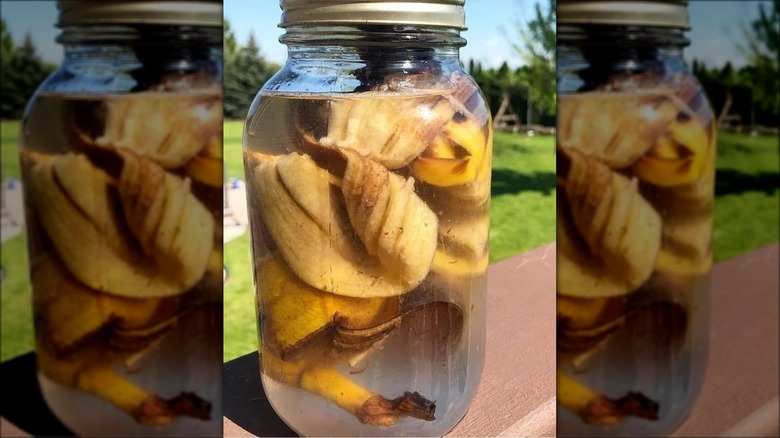Is Banana Water Really The Gardening Hack It's Cracked Up To Be?
TikTok is going bananas over banana peels, with numerous creators dropping reels that claim "banana water" is nature's perfect fertilizer. For the uninitiated, you steep this magical brew by soaking banana peels in water for a couple of days — ideally in social media's favorite vessel, the mason jar — and then use the liquid to water your garden plants. The idea behind the hack is that the ample potassium in banana peels will make your fruits and veggies grow faster and stronger.
In addition to the fact that bananas are inexpensive, despite skyrocketing costs seemingly everywhere else at the supermarket, they are also the subject of cool trivia ... not only are bananas berries (who knew?), but they are also ever so slightly radioactive, which isn't nearly as sinister as it sounds. Despite the fact that we love to eat bananas, it's an unfortunate truth that banana water is ineffective at best and may even be harming your garden.
Bananas aren't actually the fruit richest in potassium — avocado, watermelon, apricots, and several others have more. Additionally, soaking their peels releases only a negligible amount of potassium that likely isn't sufficient to enrich your plant babies. However, they might contain traces of commercial pesticides applied during their growth, which can leach from the peels into your banana water. That is not likely what you want for your garden. Still determined to use banana peels for something useful in your garden? All hope is not lost ... you just need to rethink how to do it.
Here's how you can actually use banana peels in your garden
There are a few ways that you can use banana peels effectively in growing your favorite plants. One method is by dehydrating the peels, either at a very low setting in your oven or by using a dehydrator, and sprinkling the resulting banana dust on your garden. This is best done with organic banana peels, as non-organic store-bought bananas could still have the problem of pesticides clinging to the peels (though organic crops can also have some pesticides applied).
Alternatively, you can compost your banana peels with the rest of your kitchen scraps for maximum impact. Adding compost to soil improves it in almost every way: it gives structure, boosts fertility, and amps up the soil's ability to both aerate and retain water. It can take up to a year for banana peels to decompose in compost, during which time most of the chemical pesticides used in American-grown bananas will have dissipated. There are also methods for whipping up "compost tea" that call to mind the banana water hack, though this involves infusing water with the essence of already-broken-down compost if you like the idea of making a nutritional liquid for your plants. But, regardless of your banana peels' ultimate fate, consider taking a pass on the banana water trend.

